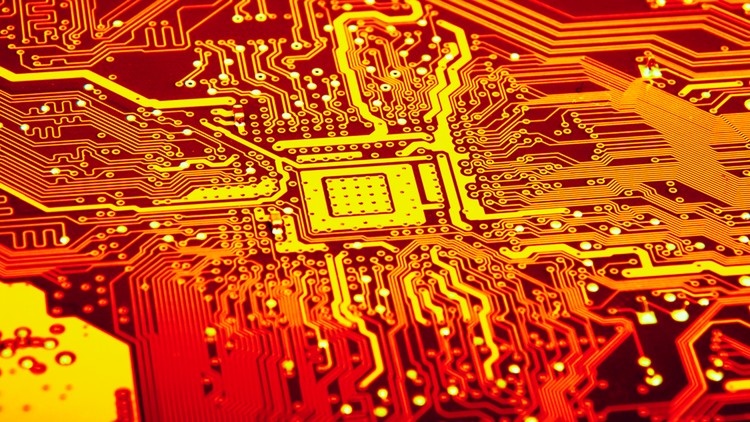A Guide to Electronics Cooling

Why take this course?
🚀 A Guide to Electronics Cooling: Become a Thermal Analyst 🌡️
Introduction to Electronic Cooling
The digital revolution has irrevocably changed our daily lives, with electronic devices becoming an integral part of our existence. As manufacturers strive for innovation and performance in their products, the challenge of managing heat within these devices has become increasingly critical. The ability to efficiently cool electronics is a pivotal factor in maximizing device performance and longevity. 🌍💻
Course Overview
This comprehensive course is designed to equip you with the knowledge and skills necessary to design thermally balanced electronic systems. By understanding the principles of thermal management, you'll be at the forefront of a cutting-edge field that is in high demand across various industries. 📚✅
Why Study Electronics Cooling? 🚀✨
- High Demand: With electronic devices becoming ubiquitous, the need for professionals skilled in thermal management is at an all-time high. High-paying opportunities await those with this expertise. 💰💼
- Transferable Skills: The principles of electronics cooling are not confined to silicon chips alone; they have applications in civil and mechanical engineering, among others. 🏗️♻️
- Career Potential: As a thermal analyst, you'll play a crucial role in the development and optimization of electronic systems. This course sets you on the path to becoming an industry expert. 🎓🔧
Course Structure & Methodology
- Engaging Lectures: Utilizing whiteboard animations, complex topics are simplified and made accessible through visual storytelling. This interactive approach enhances learning and retention. 🎬🤓
- Step-by-Step Learning: From the generation of heat to its dissipation, the course covers all the fundamentals with a focus on practical applications. You'll gain confidence in analyzing electronic components using their datasheets. 📏📜
- Industry Techniques: The course delves into state-of-the-art cooling techniques such as Heat Sinks, Heat Pipes, Heat Pads, and Thermal Compounds, ensuring you're up to date with the latest industry practices. 🧪🔧
- Comprehensive Transcripts: Every lecture comes with detailed transcripts for your convenience and study aid. 📄📖
Who Should Take This Course?
This course is tailored for a diverse audience:
- Beginners: Those with basic science knowledge and an ability to handle simple equations can dive into the world of electronics cooling and emerge as a thermal expert. 🏫🚀
- Aspiring Thermal Analysts: If you're looking to specialize in thermal management for electronic systems, this course is your gateway. 🧠📈
- Electronic System Designers: Enhance your designing capabilities by understanding the critical aspect of heat dissipation in electronic systems. 🖨️🔬
Requirements & Prerequisites
To excel in this course, you should:
- Have an Interest: A passion for technology and a curious mind ready to learn. 🤩✨
- Basic Mathematics: Proficiency in understanding and performing basic mathematical equations is essential for the practical aspects of the course. ✏️💡
Embark on your journey to mastering electronics cooling with this insightful and hands-on course. Elevate your career and become a thermal analyst in high demand across industries. Enroll now and take the first step towards a future where you're not just keeping up with technological advancements, but leading the charge! 🌟🔥
Course Syllabus at a Glance:
- Fundamentals of Heat Generation in Electronics
- Heat Dissipation Mechanisms
- Calculations and Thermal Performance Analysis
- Advanced Cooling Technologies
- Practical Applications and Case Studies
- Preparing for a Career as a Thermal Analyst 🎫🔗
Join us on this thermally charged educational adventure and become an integral part of the future of electronics cooling! 🌐🔥👨💻👩💻
Loading charts...